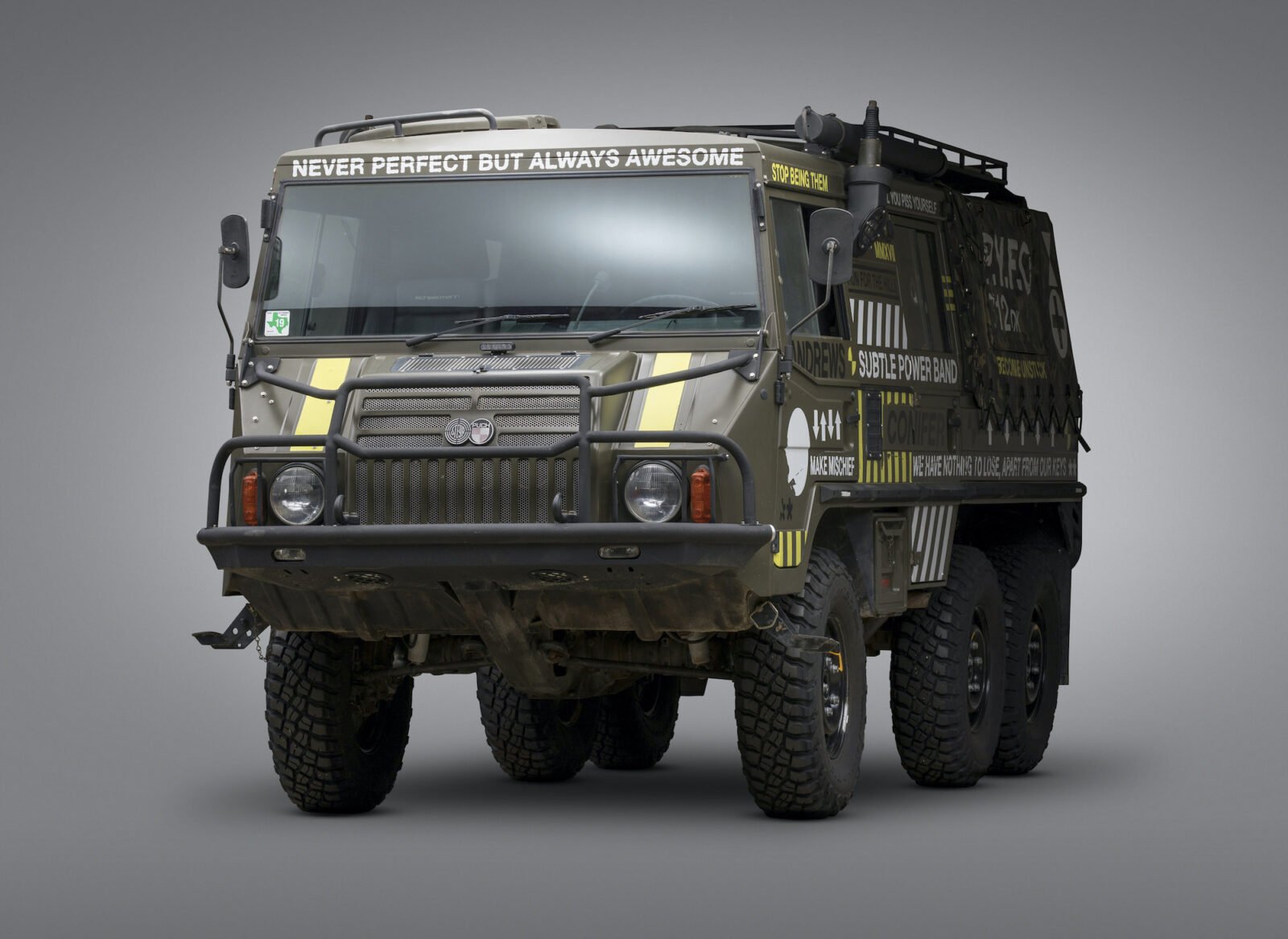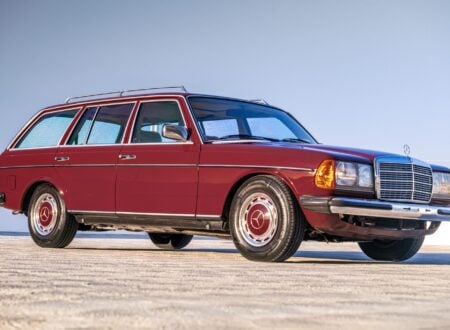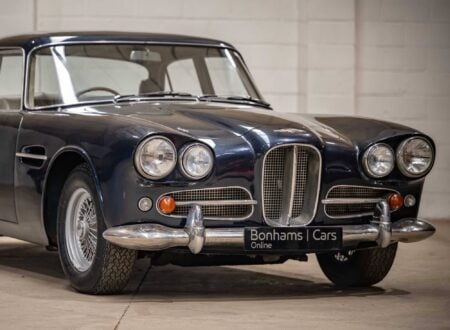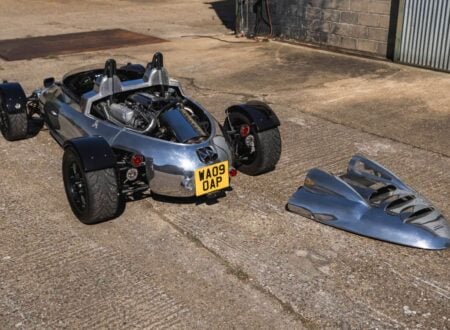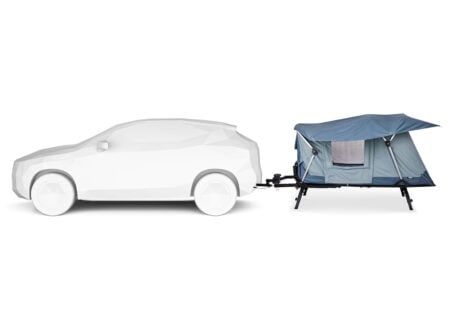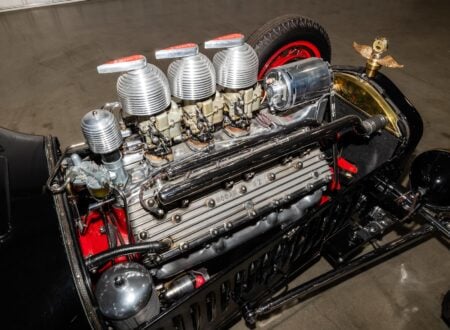This is a Steyr-Puch Pinzgauer 712DK 6×6 and unlike its contemporaries, it’s been covered with artwork by Nico Sclater, aka Ornamental Conifer, a celebrated British artist who works on a vast array of canvasses from skateboards and motorcycles, to buildings, Formula 1 cars, and of course, the Pinzgauer shown here.
The unusual-looking Steyr-Puch Pinzgauer was developed in the late 1960s as a replacement for the Steyr-Daimler-Puch Haflinger, a smaller military 4×4 that bares a strong resemblance with its successor.
Over the course of the 1971 to 2007 production run almost 20,000 examples of the Pinzgauer were made in 4×4 and 6×6 specification, and they were used by militaries around the world.
Fast Facts – The Pinzgauer
- The Pinzgauer was available in both 4×4 and 6×6 versions, both used portal axles to keep the differentials up out of the way and provide excellent ground clearance.
- People often mistake the Pinzgauer for the Unimog, its fellow European off-roader with similar looks and a forward cab design.
- The 4×4 version of the Pinzgauer is remarkably capable and can carry 10 people or two NATO pallets, it can tow 5,000 kilograms (11,023 lb) on road and 1,500 kilograms (3,307 lb) off road.
The Steyr-Puch Pinzgauer 712DK 6×6
The Steyr-Puch Pinzgauer 712DK 6×6 you see here is a little more unusual than most, as the model name suggests it’s now a six-wheel drive 712 version of the vehicle but it started out as a 710 4×4.
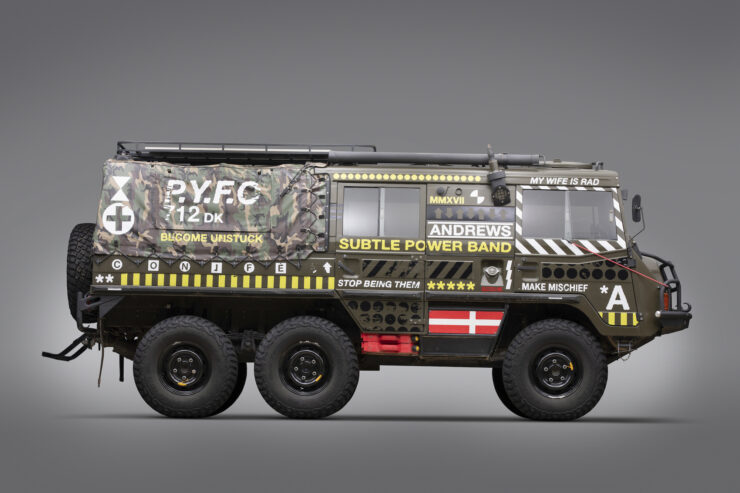
Above Image: This Pinzgauer is adorned with art from Ornamental Conifer, setting it apart from its standard military green counterparts.
Due to the modular design of the Pinzgauer this one was able to be upgraded with an extra set of driven wheels at the back, with a modified four-door crew cab pickup body. It’s now equipped for serious off road use with a bullbar, twin sand ladders, a high-lift jack, a roof rack, and that famously high ground clearance enjoyed by all Pinzgauers.
Ornamental Conifer
Apart from the above mentioned modifications what sets this Pinzgauer apart from its brethren is the custom paintwork by celebrated artist Ornamental Conifer. The front and both sides of the vehicle have been given his signature touches including patterns and messages, ensuring that no other Pinzgauer on earth will ever look the same.
“Ornamental Conifer is the moniker of British artist, Nicolai Sclater. Over the past few years Conifer has travelled internationally producing work for exhibitions and private collectors, as well as working closely with large brands on commercial projects.
Painting onto motorcycles, cars, clothing and an ever-increasing array of objects, Conifer’s work focuses on humour, wordplay, mischief and often-controversial yet motivational messages. Through the medium of hand painted typography and patterns, using traditional sign writing brushes and enamel paint, Conifer pays homage to the tradition of sign painting whilst allowing his earlier influences in graffiti and design to help him carve out his own progressive niche.” – Ornamental Conifer bio by Bernstein and Andriulli
Pinzgauer Specifications
As a 1971 model this vehicle will be fitted with the unusual 2.5 liter inline four-cylinder air-cooled engine that was designed to be as simple as possible to maintain and repair. It produces 87 bhp and 133 lb ft of torque which is enough for it to reach a maximum speed of 62 mph on the asphalt.
Above Video: An original Steyr-Puch Pinzgauer promotional video showing them being put through their paces off-road. It’s worth watching just for the jumps.
Power is sent to all six wheels via a 5-speed manual transmission and a 2-speed transfer case which gives a total of 10 forward gears – five in high range and five in low range for off road use. Vacuum assisted drum brakes are used all round, and the Pinzgauer has a military specification 24 volt electrical system.
Most Pinzgauers have now been retired from military service and many are finding their way into private hands. Some are kept in exact military specification but many are being converted for civilian use into campers and adventure vehicles like the one you see here.
Spare parts are widely available and there are committed ownership clubs dedicated to keeping the Pinzgauer on the road, or off as the case may be.
The modified Pinzgauer you see here has a crew cab design with seating for up to eight in the front two sections. There are benches in the rear, as well as ample space for equipment and luggage, and there are two sand ladders and a high-lift jack should you happen to get stuck.
This vehicle is due to roll across the auction block with RM Sotheby’s in mid-August in California. If you’d like to read more about it or register to bid you can click here to visit the listing.
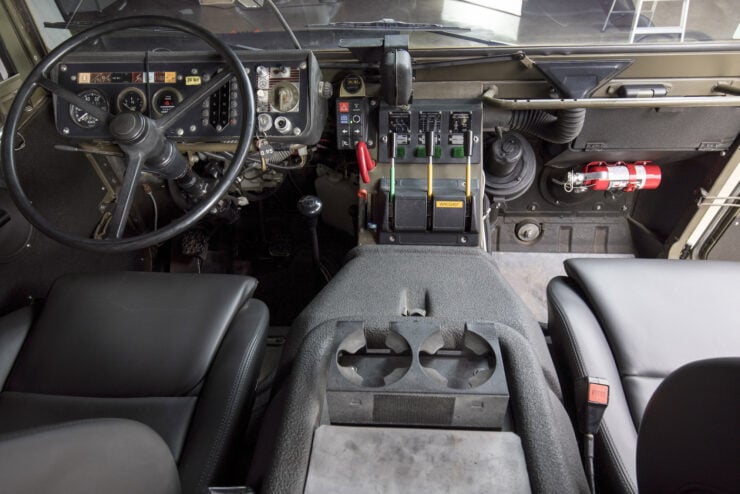
Above Image: The cab-forward driving position gives excellent visibility of the terrain ahead.
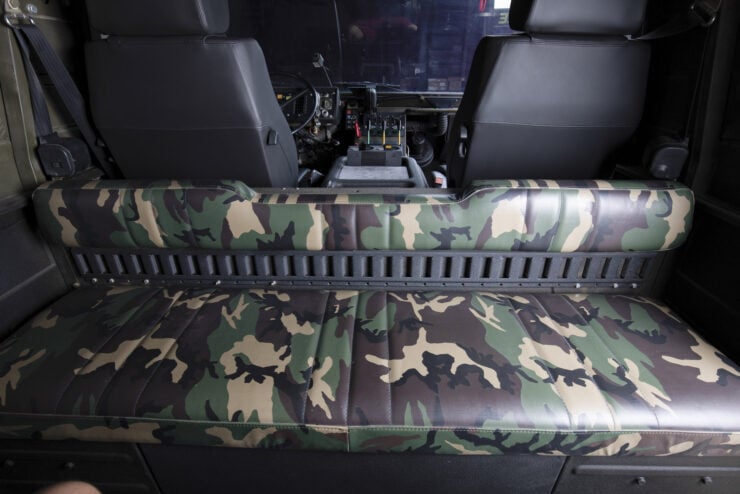
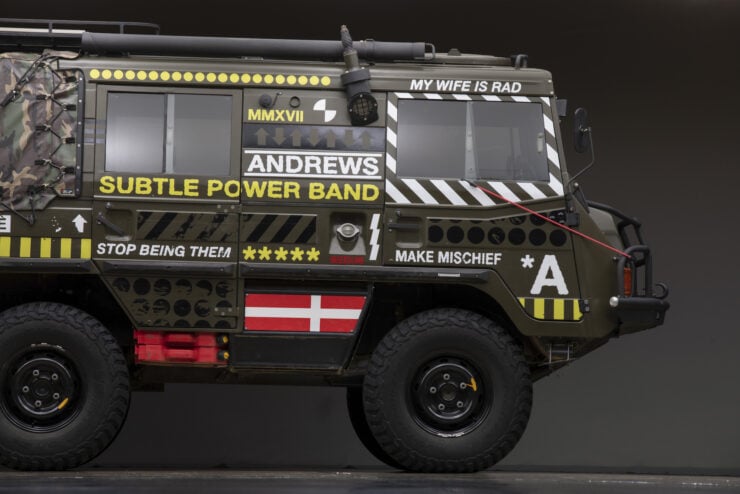
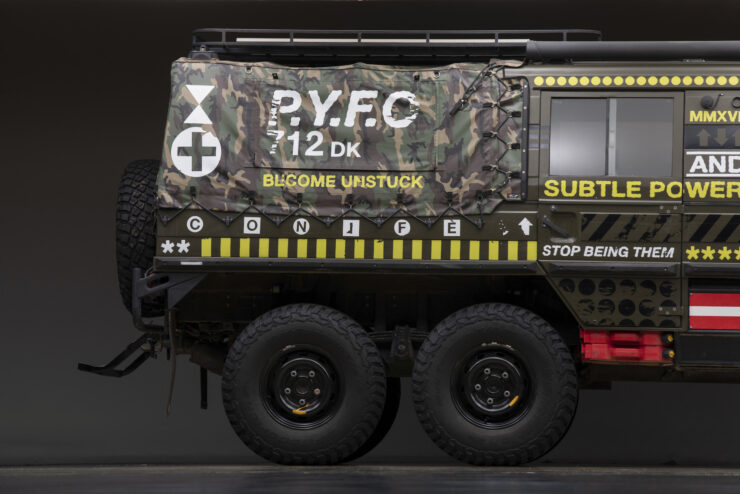
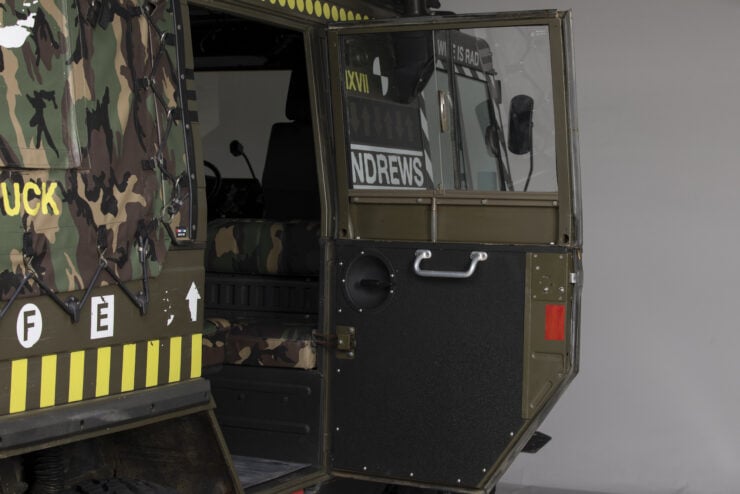
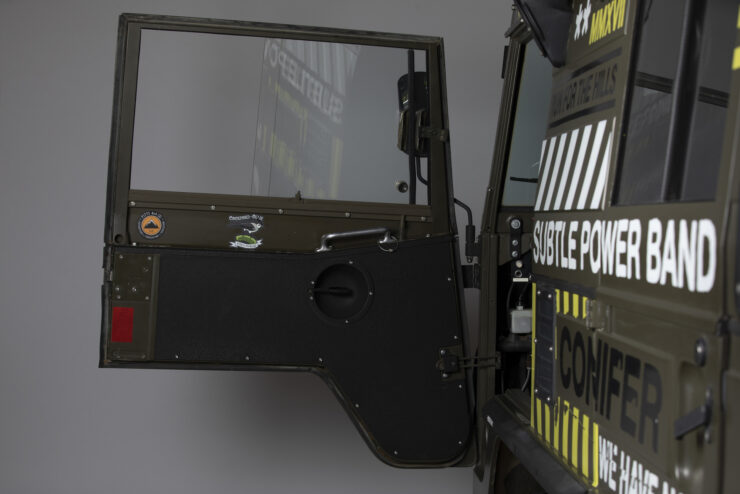
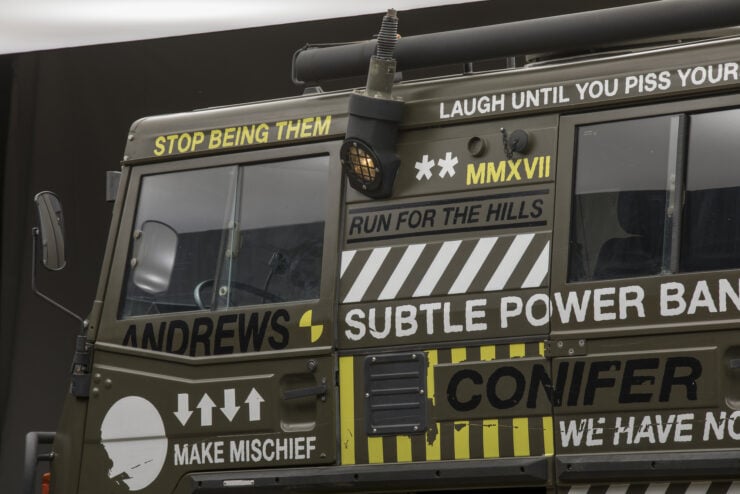
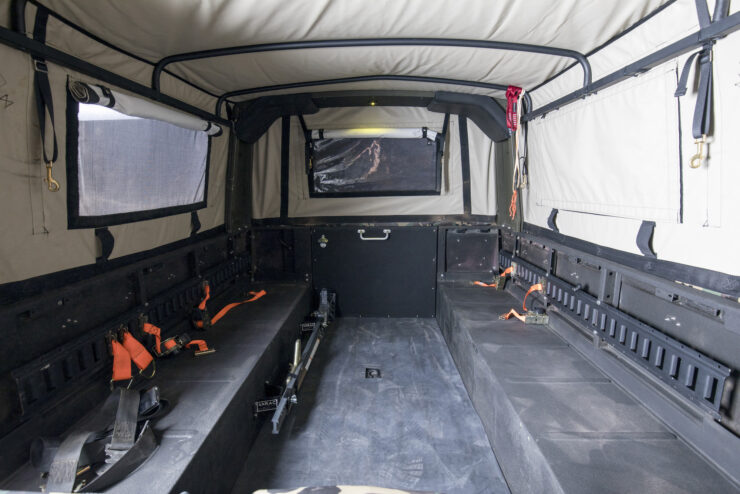
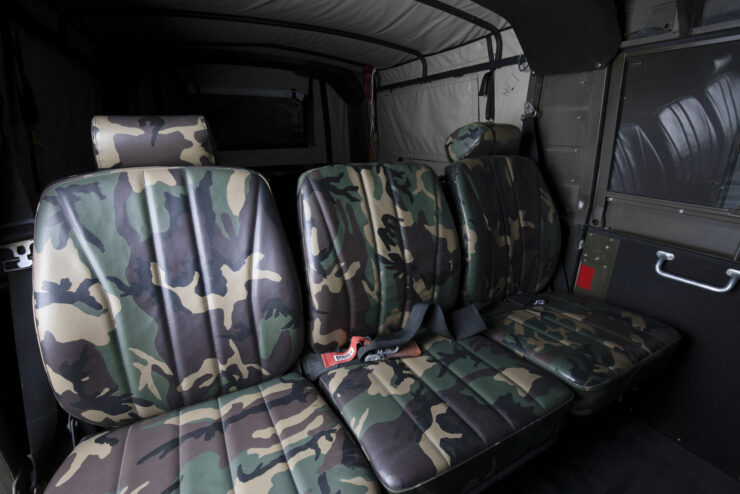
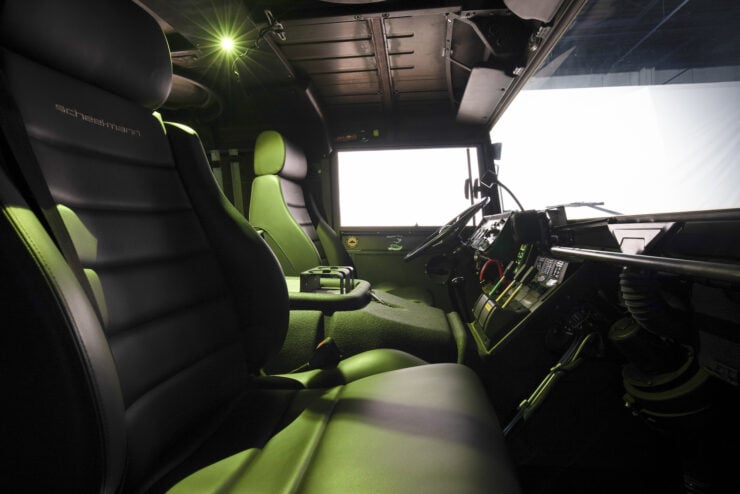
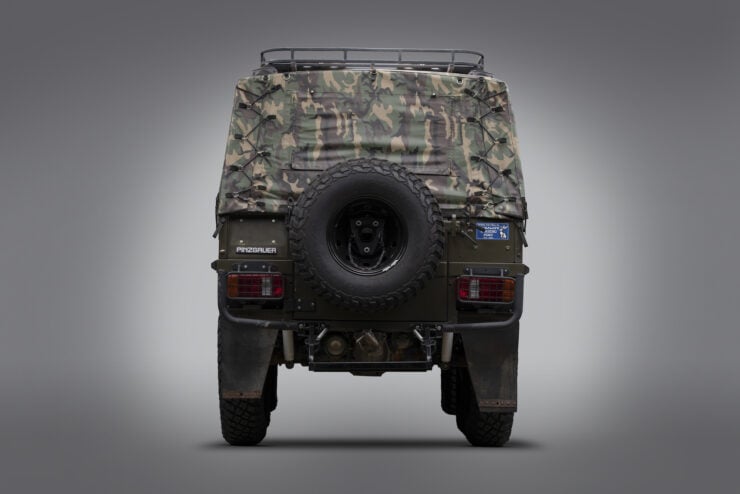
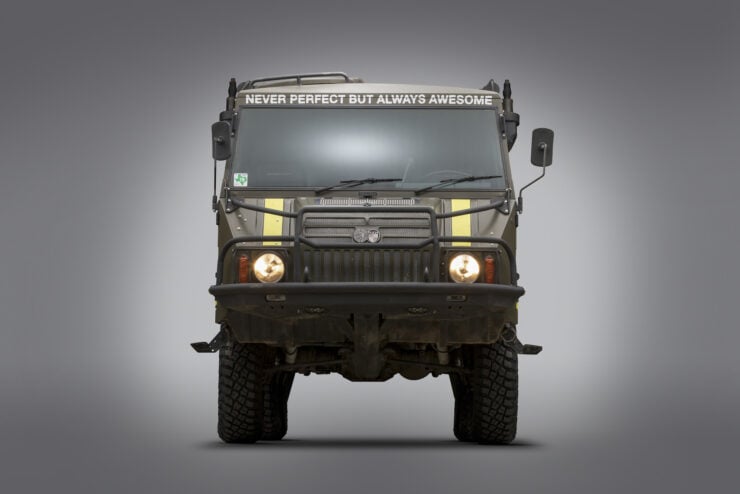
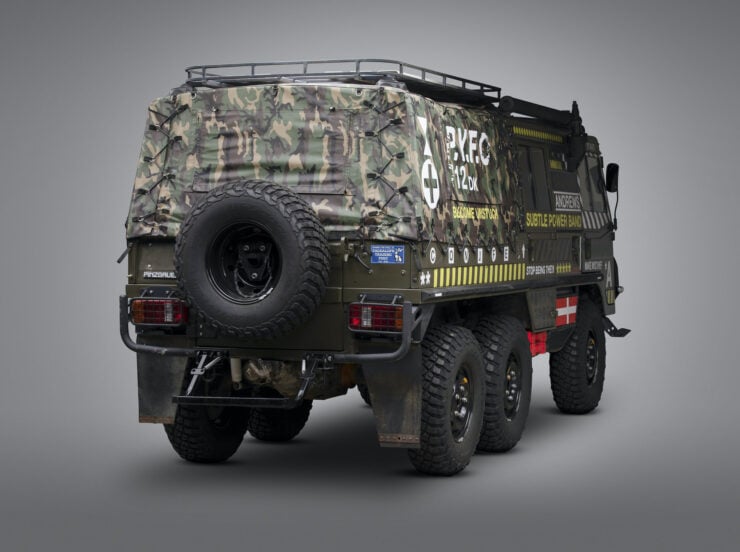
Images: Rasy Ran ©2021 Courtesy of RM Sotheby’s

